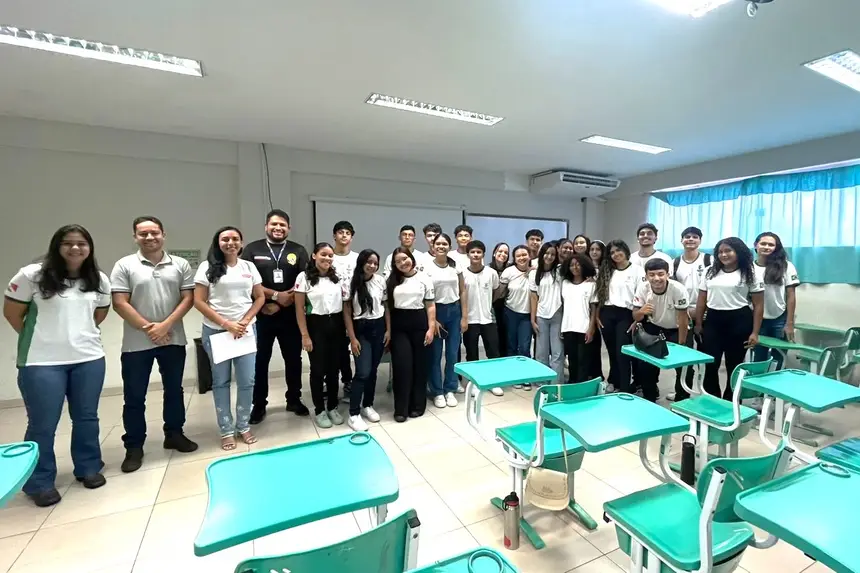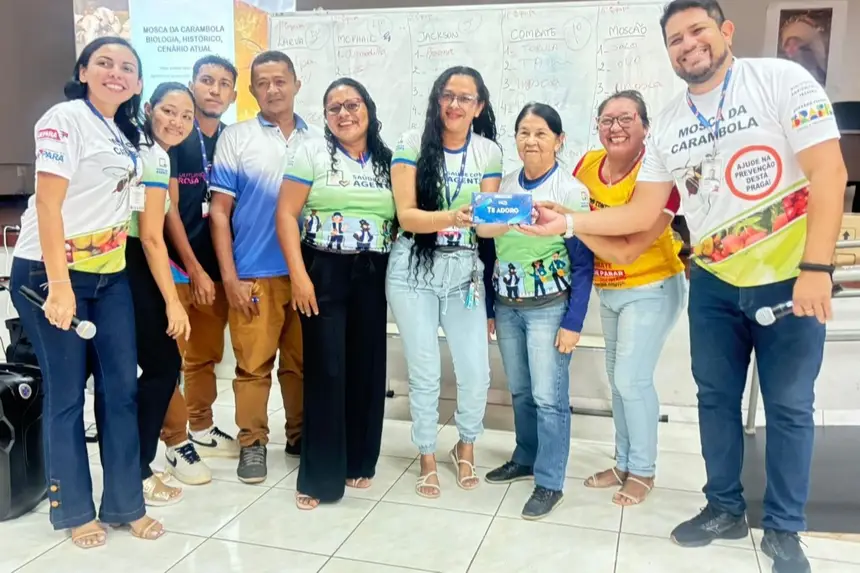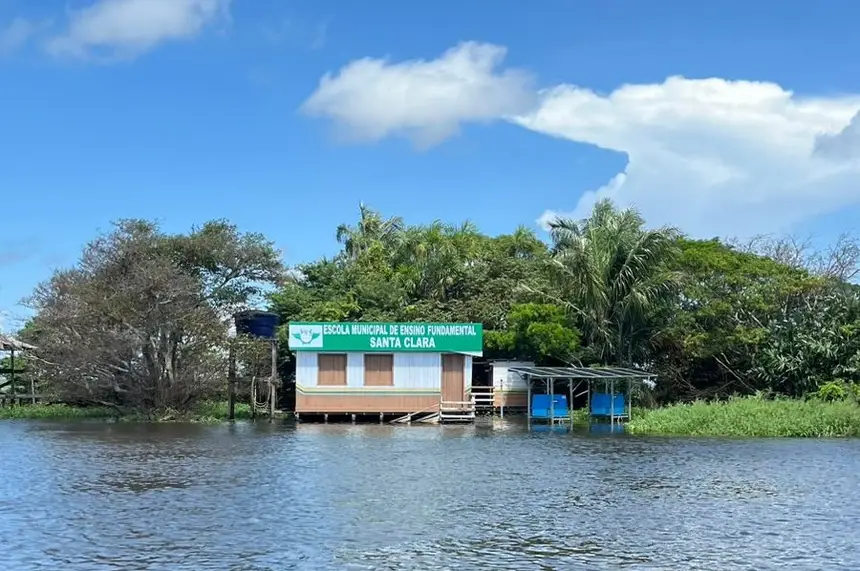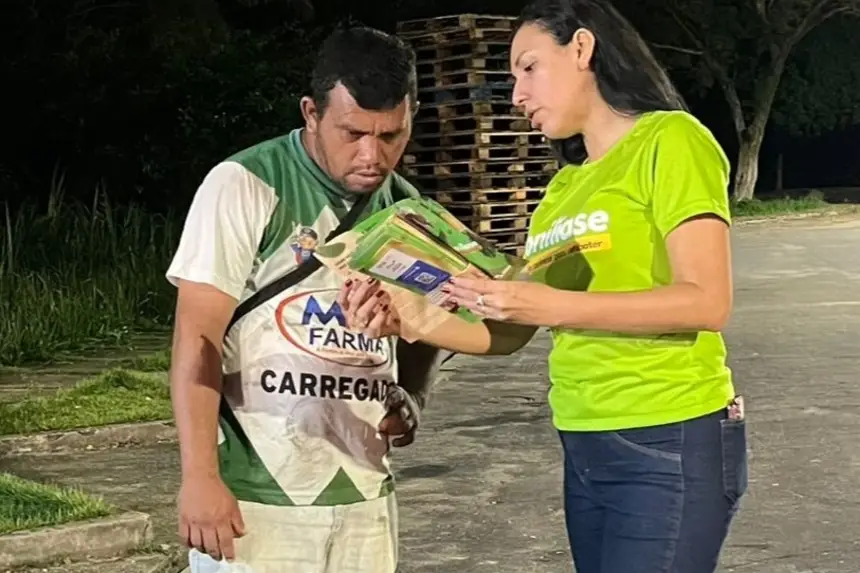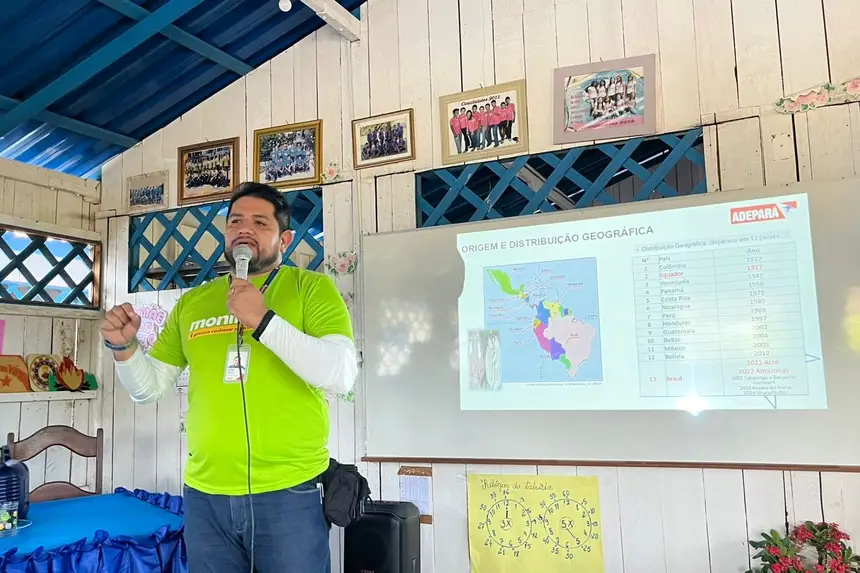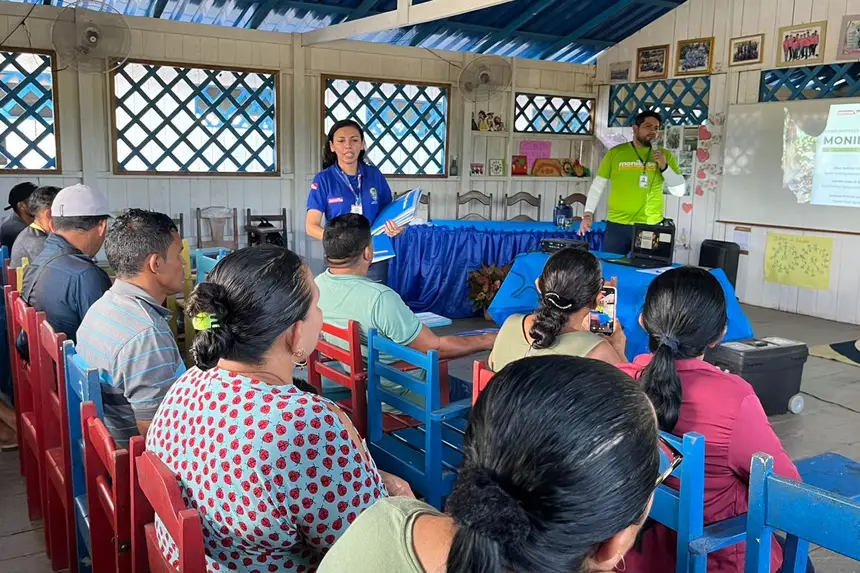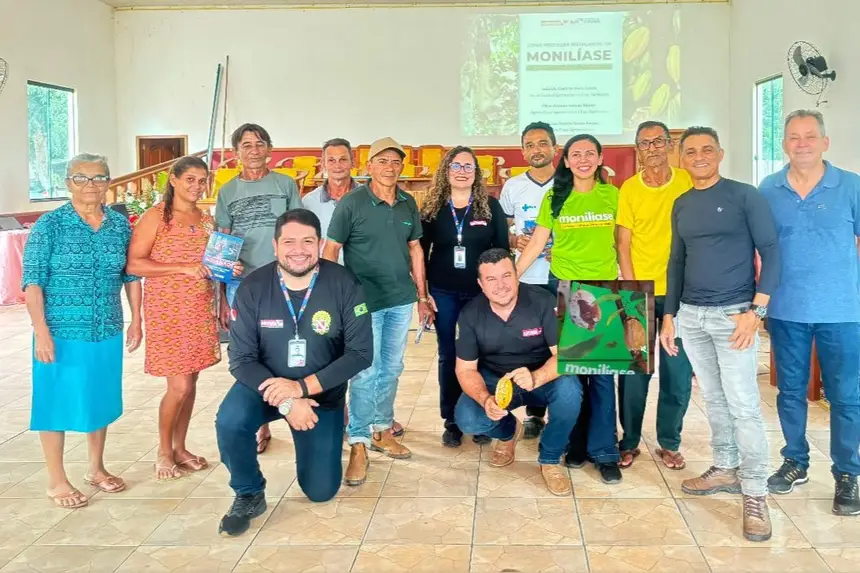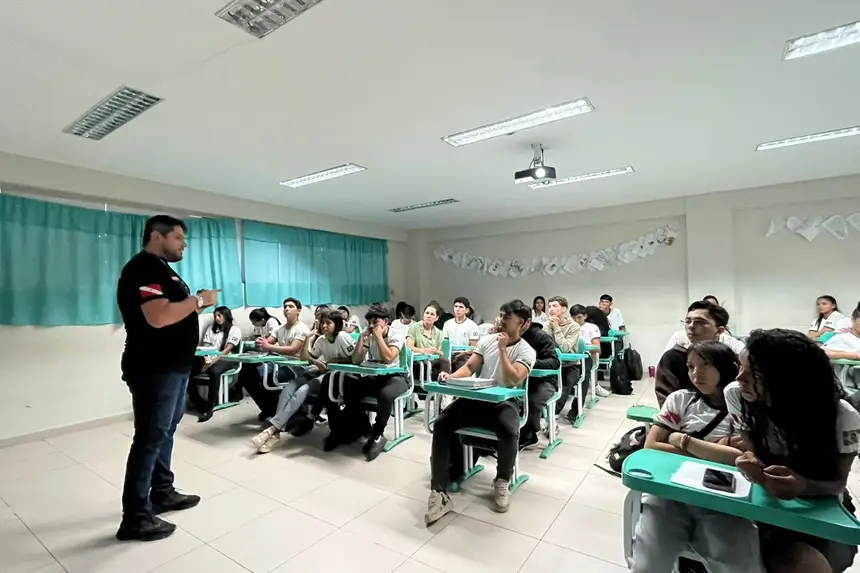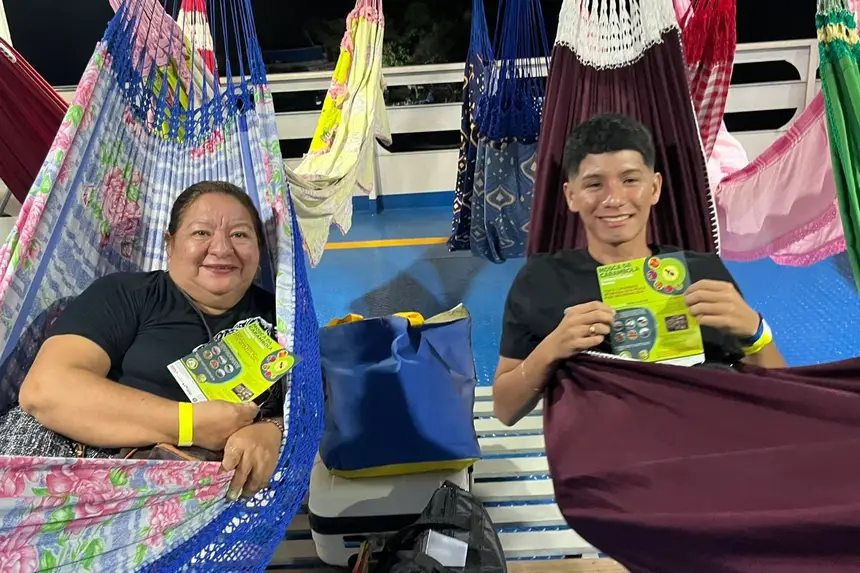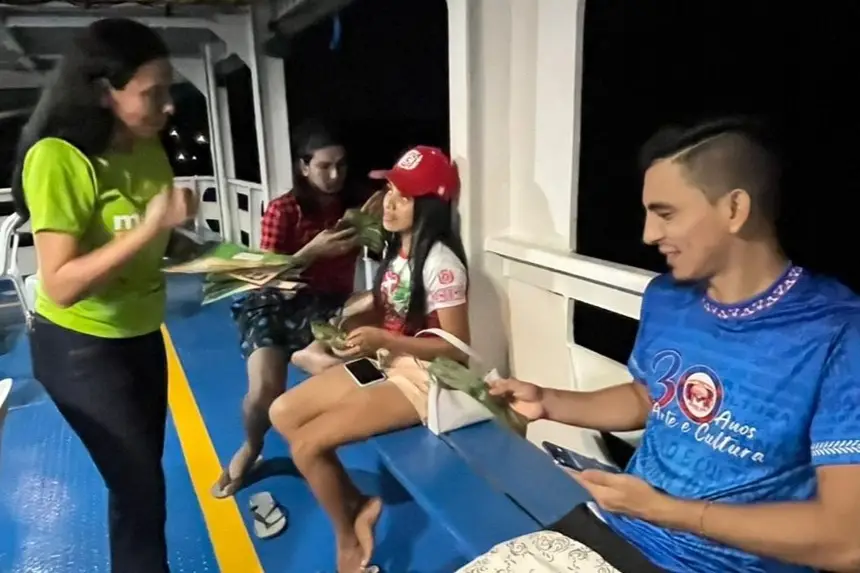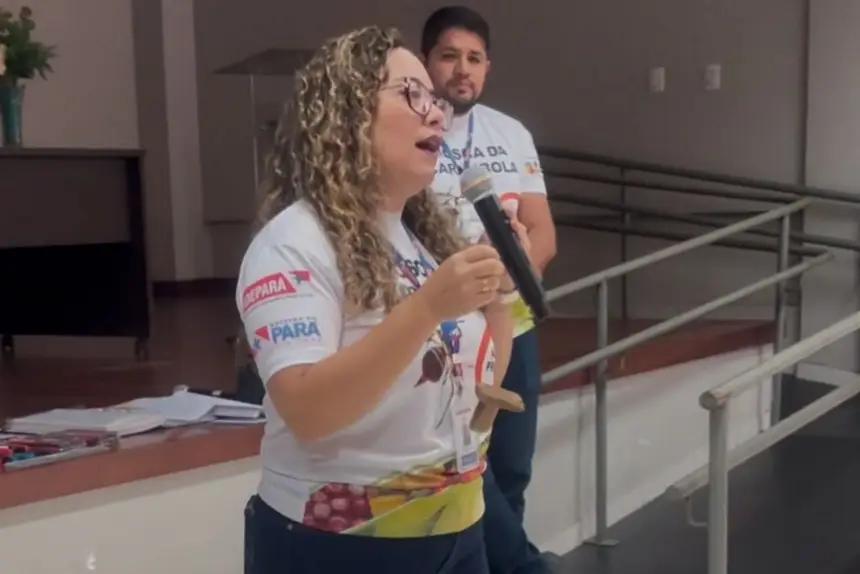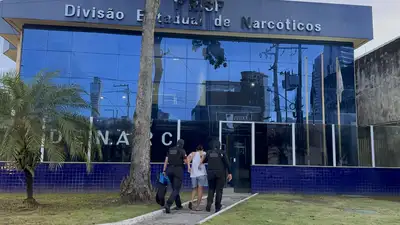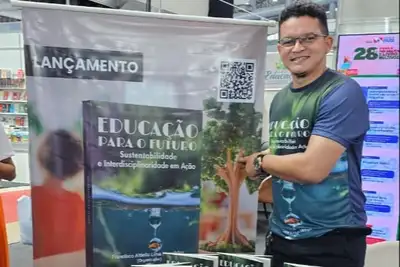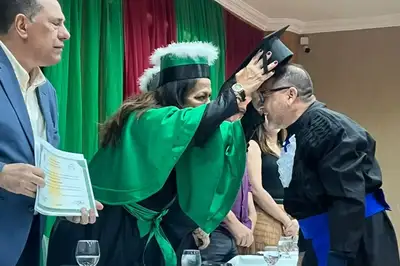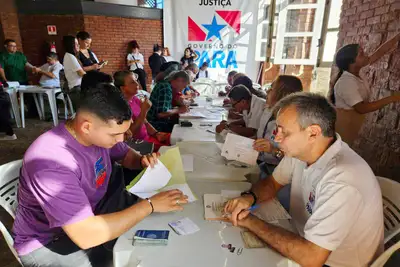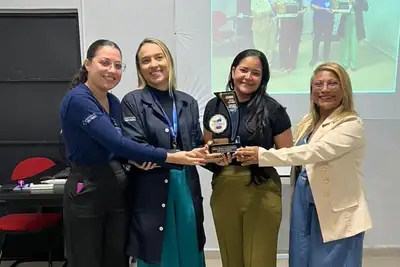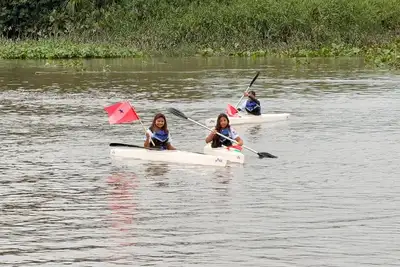With educational actions, ADEPARÁ prevents pests and diseases in the Baixo Amazonas region
The activities aimed to expand the population's knowledge about the main pests and diseases affecting agricultural and animal production, focusing on prevention and sanitary control.
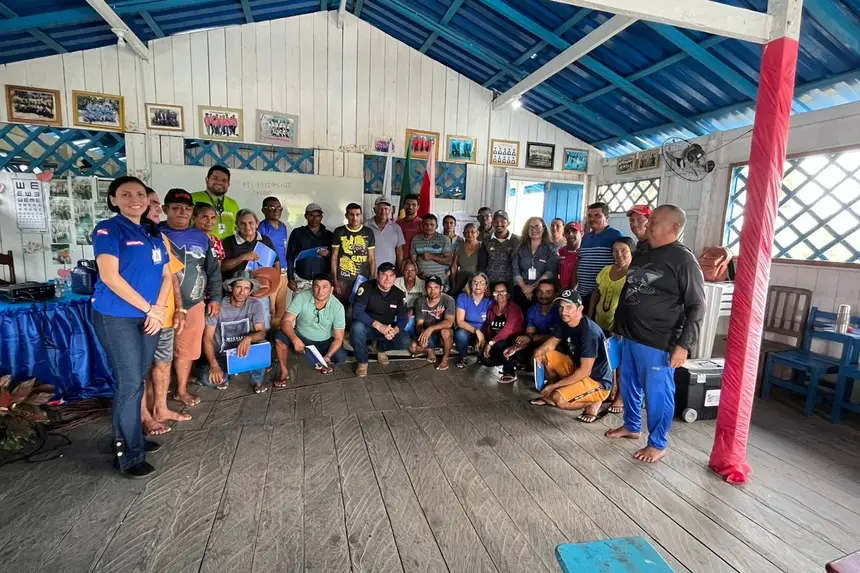
The municipalities of Óbidos and Oriximiná, in the Baixo Amazonas integration region, received educational actions promoted by the Agricultural Defense Agency of the State of Pará (Adepará), through the Sanitary Education Management. The activities aimed to expand the population's knowledge about the main pests and diseases affecting agricultural and animal production, focusing on prevention and sanitary control.
In Óbidos, on the banks of the Amazon River, the actions were directed at teachers and students of the technical courses at the local campus of the Federal Institute of Pará (IFPA). Courses aimed at training multiplier agents of the National Program for the Eradication of the Caribbean Fruit Fly were also offered, with the participation of community health agents, endemic agents, and sanitary surveillance technicians.
"These courses follow a national calendar and are essential for training people who work in both rural and urban areas. They become multipliers of information about pests that impact agricultural crops. With these two courses held in Óbidos, we have already reached a total of 52 trainings," informed Gabriela Cunha, agricultural inspector and agronomist responsible for the educational actions of the program.
During the courses, active teaching methodologies were used to address the Caribbean fruit fly, one of the main threats to Brazilian fruit growing. The insect, which reproduces in more than 30 types of fruits, is combated through a structured state program that includes agricultural defense actions and awareness campaigns.
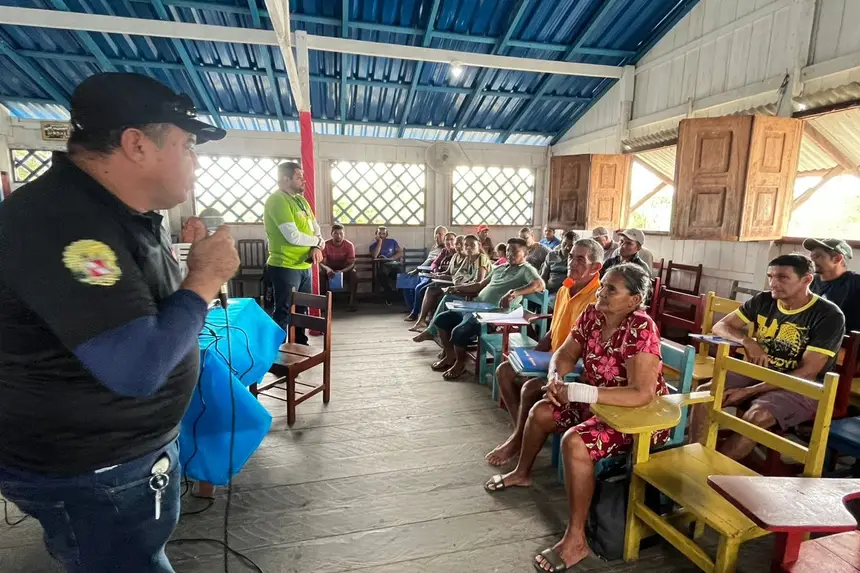
Prevention and control in the field and communities
In Oriximiná, the educational actions took place in rural communities, such as Nova Betel (BEC road) and Maria Ipixi, on the banks of the Nhamundá River, bordering the municipality of Terra Santa. In addition to the Caribbean fruit fly, other phytosanitary threats such as moniliasis — a disease affecting cocoa and cupuaçu trees — and cassava witch broom were addressed.
In the area of animal defense, agricultural inspector Celso Pereira presented programs for controlling brucellosis, cattle traceability, swine health, and emphasized the importance of updating producers' registrations.
“It is essential to provide information about sanitary risks to agriculture in the communities of the region, especially in municipalities bordering Amazonas, where moniliasis has already been reported. With the growth of cocoa cultivation and support from the industrial sector, it is essential to promote educational actions to strengthen agricultural defense,” highlighted Olivar Valente, an agent of Adepará.

Inspection in transit and accessible information
The Adepará team also conducted educational approaches on vessels transporting cargo and passengers to the city of Parintins (AM). The technicians distributed informative pamphlets and advised on the importance of avoiding the transport of host fruits of the Caribbean fruit fly, one of the most common ways of pest dispersal.
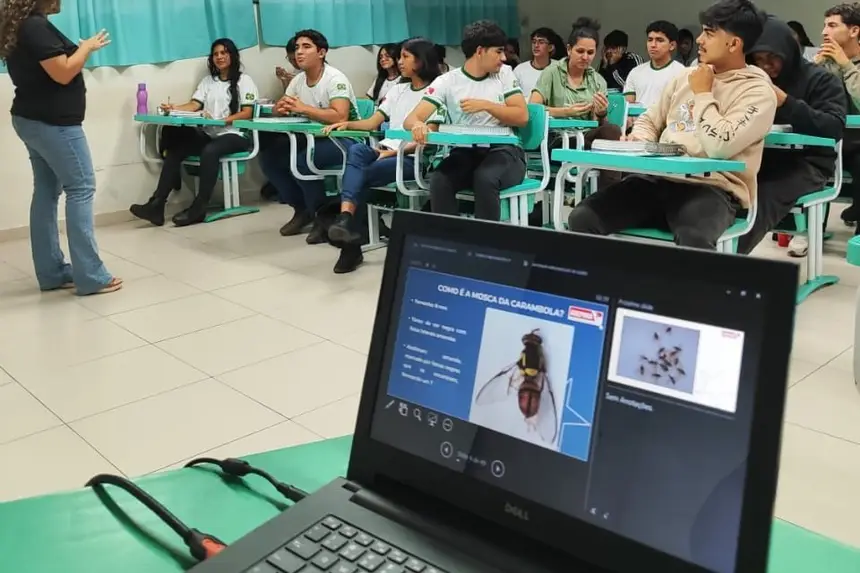
State Program for the Eradication of the Caribbean Fruit Fly
The eradication of the Caribbean fruit fly is a strategic priority for Adepará. Among the actions executed, the following stand out:
- Monitoring with georeferenced traps;
- Inspection of agricultural transit in risk areas;
- Continuous training of inspectors;
- Permanent phytosanitary education campaigns.
The initiatives follow the principles of Good Agricultural Practices (GAP), promoting integrated pest management, traceability of actions in the field, and compliance with current legislation. These practices contribute to obtaining the GAP seal, adding value to Pará's production and increasing its competitiveness in demanding sanitary markets.
“The strategies adopted by Adepará not only protect Pará's fruit growing but reaffirm the State's commitment to sustainability and productive excellence, promoting an increasingly competitive agricultural sector,” emphasized Adalberto Tavares, manager of the State Program for the Eradication of Fruit Flies.


